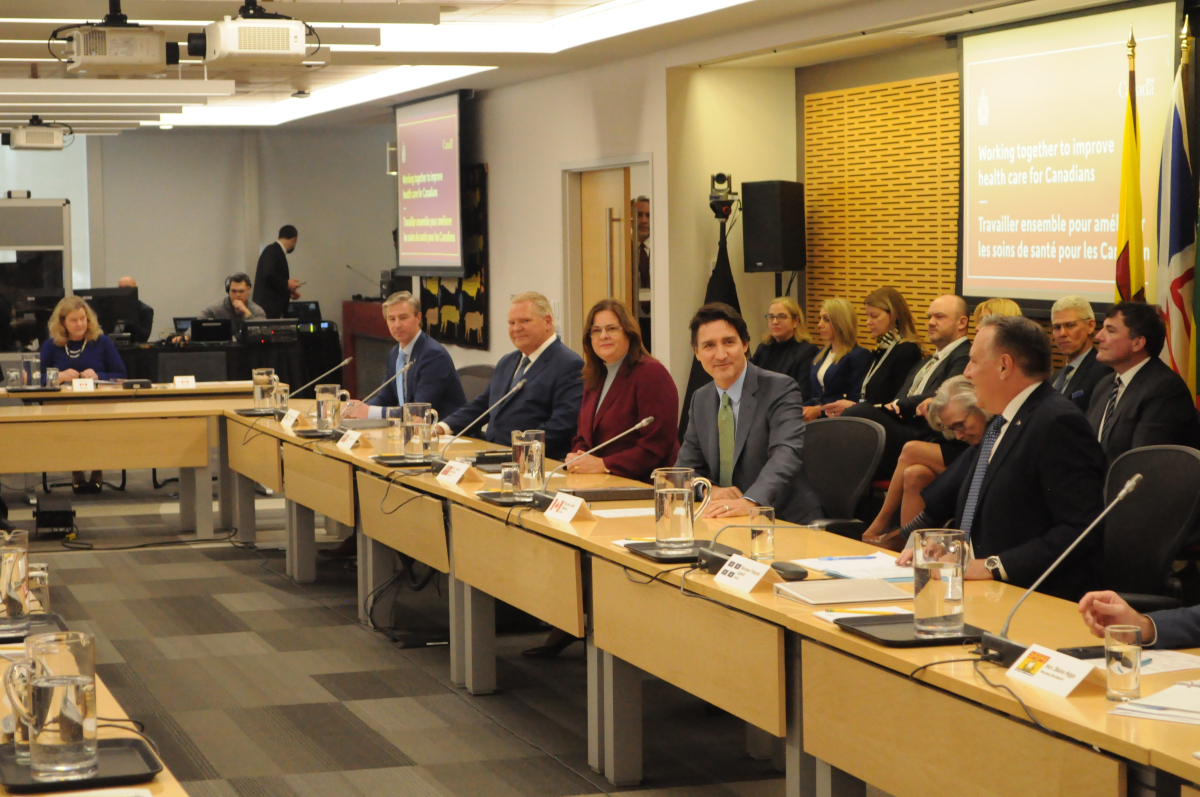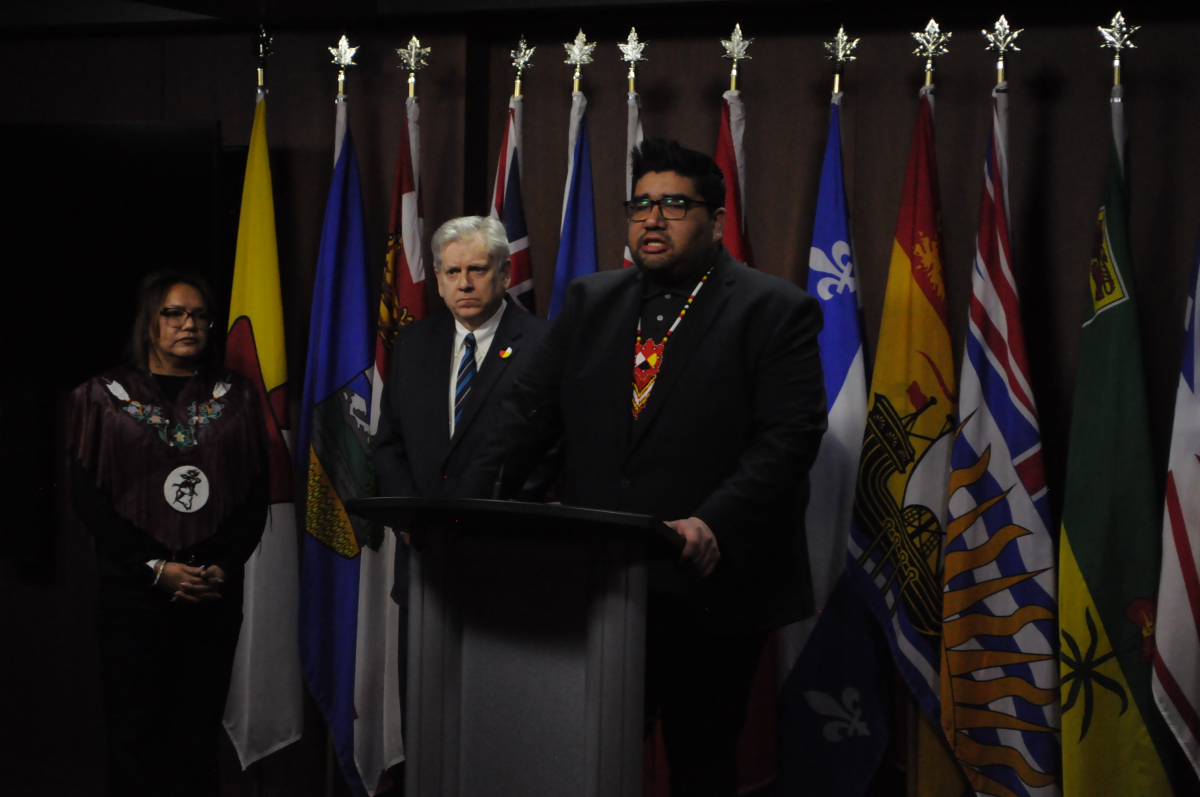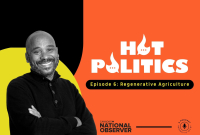Support strong Canadian climate journalism for 2025
First Nations leaders in Ontario are demanding greater inclusion and accountability from their treaty partners as premiers gather with the prime minister in Ottawa to discuss health care.
“I’m sorry our country is going through this (health-care problems), but (Indigenous Peoples) have faced this for numerous years,” Alison Linklater, grand chief of Mushkegowuk Tribal Council, said at a press conference Tuesday.
“It’s time for the government to meet with us… It’s been too long we’ve been accepting the status quo.”
Linklater was joined by Gauis Wesley, chief of Kashechewan, and Charlie Angus, NDP MP for Timmins-James Bay, all of whom highlighted the lack of Indigenous representation at the first ministers meeting.
One day before, another First Nations leader called out Prime Minister Justin Trudeau for “performative” reconciliation.
After Assembly of First Nations National Chief RoseAnne Archibald formally requested to attend the first ministers meeting, Trudeau responded by promising to advocate for Indigenous health care at the summit but did not offer an invite, CBC reports.
Indigenous Peoples often grapple with jurisdictional overlaps and grey areas between federal, provincial and municipal partners. First Nations themselves fall under federal jurisdiction, while off-reserve health care is delivered by the province and individual hospitals are a municipal responsibility.

Chronic underfunding is another significant obstacle, with northern communities facing staffing shortages, Linklater said. In Kashechewan First Nation, on the western side of James Bay just south of Attawapiskat, only three nurses are on staff to treat a community of 2,000 people.
Angus, the NDP MP, says Indigenous Peoples can’t be an afterthought for the federal government. Indigenous nations have lived with “fourth-world conditions” and “Tylenol clinics” where everything from meningitis to cancer are treated with the over-the-counter drug, he said.

At a press conference Tuesday evening, Trudeau noted Indigenous Peoples often face gaps and inequities in health care and should be able to access care without racism and discrimination.
The prime minister also announced an Indigenous health equity fund of $2 billion over 10 years to close health-care gaps. Ottawa will work with Indigenous leadership to ensure there are measurable results, he explained, adding: “What gets measured, gets done.”
For remote communities, health-care expenses can add up quickly. For example, citizens of nations in northern Ontario have to travel and sometimes relocate away from their home communities to access dialysis care, Linklater said. In Kashechewan last month, children had to wait five to seven days to be medivaced to receive treatment for RSV, said Wesley, the nation’s chief.

Only a few years earlier, children were medivaced out of Kashechewan because of harms caused by black mould in underfunded housing.
Linklater calls the exclusion of First Nation leadership from the first ministers meeting “disappointing.” She points to the definition of reconciliation as a nation-to-nation relationship, not just nations accepting whatever Ottawa decides to give them.
“It needs to be nation-to-nation, not ‘I will advocate for you when I’m there,’” Linklater said, referencing the letter exchange between Trudeau and Archibald that was obtained by CBC.
“First Nations have to determine what reconciliation looks like … because First Nation people have suffered long enough with these inequities,” Wesley added.
Matteo Cimellaro / Canada’s National Observer / Local Journalism Initiative







Comments